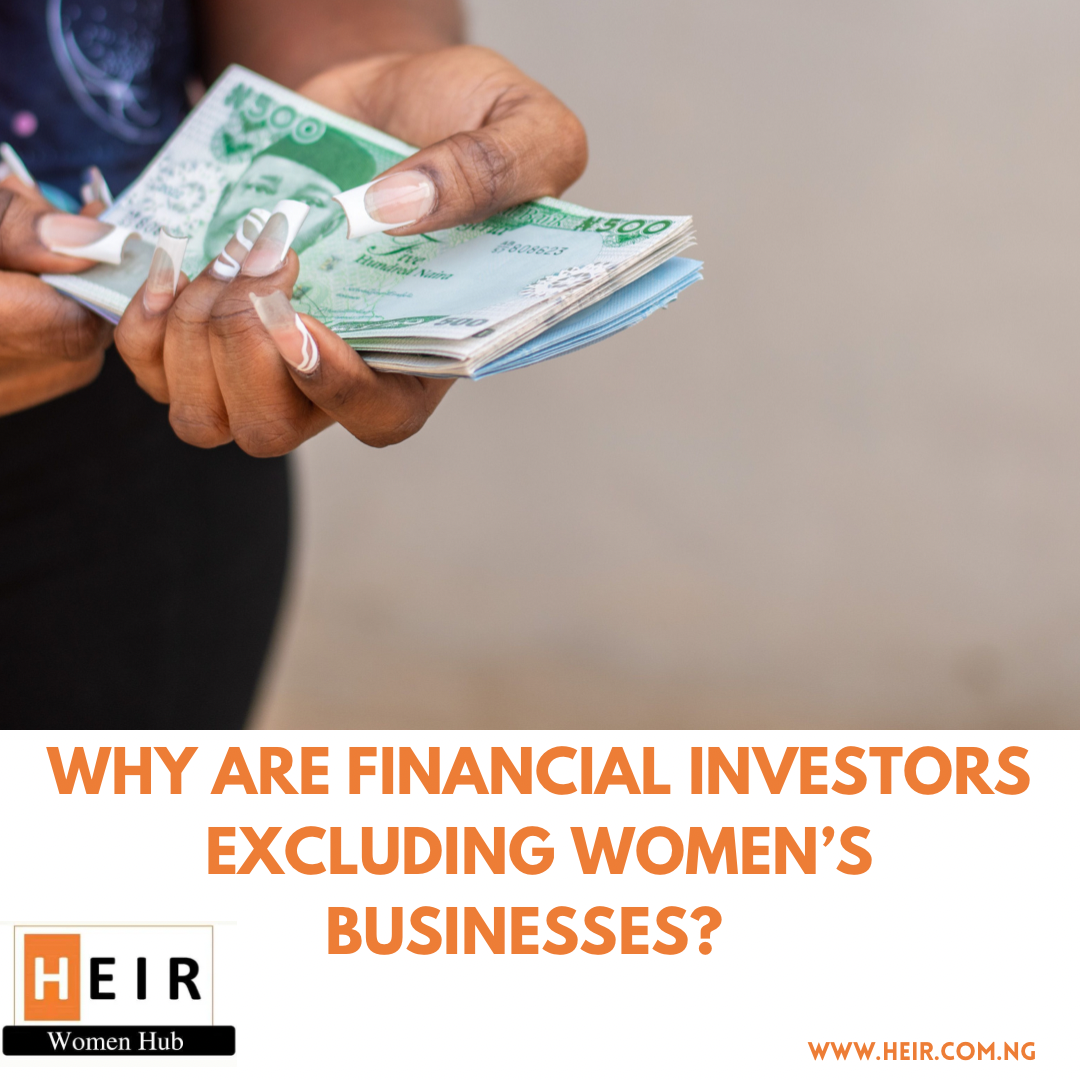
Madam Folorunsho Alakija is to date, globally recognised as the most successful female entrepreneur in Nigeria. What we often miss out in her history, is the opportunity and support from her late friend and client, Mrs Maryam Babangida. While Mrs. Alakija was the designer for Mrs Babangida’s unique style and clothes, the investment in time and idea in the opportunity that showed up during their client-ship, brought added value. The seizing of a business opportunity became a global enterprise as two women, in business, catapulted a non-transactional investment into one for the good of all.
Female entrepreneurs in Nigeria contribute to 50% of the Nation’s Gross Domestic Product (GDP). McKinsey Global Institute implies that this can go up to 19% in 2025 (up to 90 billion Dollars) if the systems are inclusive and equitable towards women in micro, medium small enterprises (MSMEs). But how can this happen when only 10% of commercial loans go towards women’s businesses and Nigerian women own 40% of businesses?
My team and I commenced on a project we designed, funded by the African Women Development Fund (AWDF) – Economic Justice – with a goal to understand the limitations that women businesses encounter when funding/loan/investment opportunities arises. This project is situated in Nigeria, we interviewed 100 women and 10 institutions of lending to ensure we have evidenced-based research that can speak to the barriers women experience in accessing economic financing.
Growing up, I experienced my mother as the entrepreneurial person. She demonstrated what it means to be what is now called “a serial entrepreneur”. Mom ventured into small businesses which she expanded, while holding down a teaching job and volunteering as a secretary to Mrs Maryam Abacha, president of the Nigerian Army Officers Wives Association (NAOWA) at the time. My father, was her investor, any business Mom was looking at doing, he was sure to support her. Though these may not have been recognised as “loans”, she made incremental efforts to ensure her small businesses produced profit. She is financially literate and kept books and records of her businesses, a skill she picked up from her own Mom (My Grand Mom) who also was a serial entrepreneur. These skills increased her as an astute entrepreneur and gave her the capacity to create, develop, run and manage diverse businesses in her ability even after her husband, my Dad, passed.
Many women are like my mother- raised to be hard working (literally) and to build businesses. However, the climate today is unfriendly to female entrepreneurs in my opinion. Accessibility and clarity of loans from financial institutions today, as we have encountered from our recent research, places women at an economic dis-advantage, even when seeking for investments and loans for their businesses. Many women may not have support systems to loan or invest in their businesses and while they try to look at financial institutions, they are met with limitations.
One of the re-occurring limitations is collateral. Our findings show that financial institutions require a collateral in form of land or property for loan applications to be successful. However, what we should be looking at as well is that historically, the marginalisation and domestication of women placed a control over land and property ownership in Nigeria until recently. Women were not entitled to land and property for decades and inheritances of land and property was a problem. Today, the financial institutions that require this material possession as collateral to ensure an approved application, have yet to take this part of social norms into consideration, that women that have been denied land and property, are unable to now magically own lands and property as eligible loan takers.
This is a catch-22 requirement in my opinion. Our survey shows that 69% of men apply for loans than 31% of women. Analytically, it means that criteria like property and land, are not owned by women and such criteria will either not encourage application nor cause an application for loans to be unsuccessful. This automatically excludes women. Our current economic climate impacts women negatively, showing that women are still under-represented in economic access and loan opportunities due to the strict process influenced by social norms. Women businesses and the gross impact of exclusivity in economic policy making in financial institutions of lending, further limits women from becoming economically independent and empowered. This same women-led MSMEs contribute to employment in Nigeria.
While our data has shown that women are more resilient in loan repayments than men, women are still under financed and under invested. The society is showing the posture of deliberately excluding women owned and run SMEs when the economic investment climate shows a controlled inclusivity.
The year of investing in women should be a year where we hold institutions of lending accountable and get them to demonstrate how intentional they are in investing and financing women owned start- ups and MSMEs.
For more on the project survey outcomes and further advocacy, send an email to project@heir.com.ng
Añuli Aniebo.
